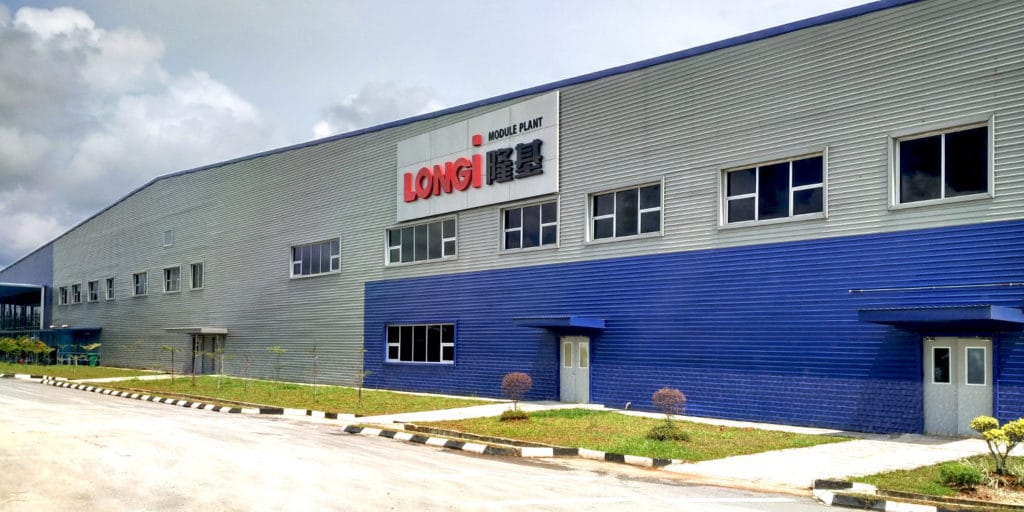The European Commission has excluded the products of Longi Kuching SDN.BHD from the applicable minimum import price regulation. These are measures imposed retroactively by Brussels as part of an anti-circumvention procedure started in February 2016.
This was intended to prevent Chinese producers from circumventing the minimum price undertaking by importing their goods into the EU under the minimum import price set for Malaysia and Taiwan.
Five producers from Malaysia and 21 from Taiwan had already been exempted at the time of the imposition of the measures, as they were able to prove they were not using any products from China. Another two from Malaysia have since been exempted from the regulations, according to a document published in the EU Official Journal.
Longi Kuching is a subsidiary of the Chinese PV manufacturer, Longi Solar. It operates a fully integrated factory in Malaysia. In mid-2017, Longi announced it had commissioned the 500 MW module factory in Kuching, which also produces on site ingots, wafers and solar cells.
“We very much welcome and appreciate the decision of the European Commission. Now we can deliver our high-performance modules to customers within the EU,” said Richard For, vice president of Longi Solar, on Tuesday.
The publication of the EU Commission on the exemption already took place in mid-July. The exemption will allow Longi to use its solar modules to “enter the European market in fair competition,” it said.
Popular content
Longi Solar claims to rely entirely on monocrystalline solar modules. Last year, the company invested US$173 million in research and development. This corresponds to 6.8% of sales.
So far, the Chinese manufacturer has focused heavily on the domestic market. For example, Longi Solar sold only 10% of its modules abroad, as director Zhen Guo Li told pv magazine at the “Smarter E” in Munich, in June. However, the company wants to increase this share to 30% this year, and aims to sell more than half of its product outside of China by 2020.
Prior to the Chinese Government's solar policy changes, announced at the end of May, the Chinese company announced massive capacity expansion plans. Despite the slowdown in its domestic market, it is sticking to them.
For example, $300 million will be invested in building 5 GW of additional module capacity in China this year. By the end of the year, the PV manufacturer is targeting module capacities of 12 GW. In addition, it plans to triple its wafer capacity to 45 GW by 2020.
This content is protected by copyright and may not be reused. If you want to cooperate with us and would like to reuse some of our content, please contact: editors@pv-magazine.com.



By submitting this form you agree to pv magazine using your data for the purposes of publishing your comment.
Your personal data will only be disclosed or otherwise transmitted to third parties for the purposes of spam filtering or if this is necessary for technical maintenance of the website. Any other transfer to third parties will not take place unless this is justified on the basis of applicable data protection regulations or if pv magazine is legally obliged to do so.
You may revoke this consent at any time with effect for the future, in which case your personal data will be deleted immediately. Otherwise, your data will be deleted if pv magazine has processed your request or the purpose of data storage is fulfilled.
Further information on data privacy can be found in our Data Protection Policy.